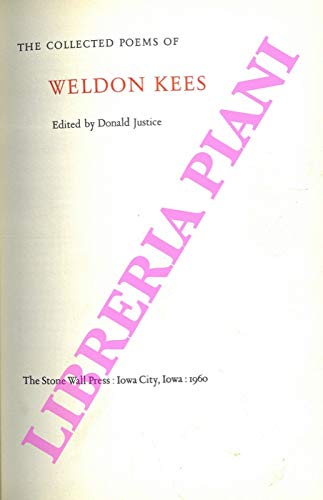What do you think?
Rate this book


Unknown Binding
First published December 1, 1975
FOR MY DAUGHTER
Looking into my daughter’s eyes I read
Beneath the innocence of morning flesh
Concealed, hintings of death she does not heed.
Coldest of winds have blown this hair, and mesh
Of seaweed snarled these miniatures of hands;
The night’s slow poison, tolerant and bland,
Has moved her blood. Parched years that I have seen
That may be hers appear: four, lingering
Death in certain war, the slim legs green.
Or, fed on hate, she relishes the sting
Of other’s agony; perhaps the cruel
Bride of a syphilitic or a fool.
These speculations sour in the sun.
I have no daughter. I desire none.
CRIME CLUB
No butler, no second maid, no blood upon the stair.
No eccentric aunjt, no gardener, no family friend
Smiling among the bric-a-brac and murder.
Only a suburban house with the front door open
And a dog barking at a squirrel, and the cars
Passing. The corpse quite dead. The wife in Florida.
Consider the clues: the potato masher in a vase,
The torn photograph of a Wesleyan basketball team,
Scatter with check stubs in the hall;
The unsent fan letter to Shirley Temple,
The Hoover button on the lapel of the deceased,
The note “To be killed this way is quite alright with me.”
Small wonder that the case remains unsolved,
Or that the sleuth, Le Roux, is now incurably insane,
And sits alone in a white room in a white gown,
Screaming that all the world is made, that clues
Lead nowhere, or to walls so high their tops cannot be seen;
Screaming all day of war, screaming that nothing can be solved.
THE DARKNESS
I have seen it in the green tree
For a long time now,
In the shapes on pavements, oiled
And streaked with rain, and where
Hands have touched at doors.
Over the roofs and streets,
On face after passing face
I have watched it spread,
At the edge of the sky at noon
Until it stains the dead
Weeds in some empty place
And saturates the sun
—As though one had pulled a string
in an unfamiliar house
of a dim light, darkening.